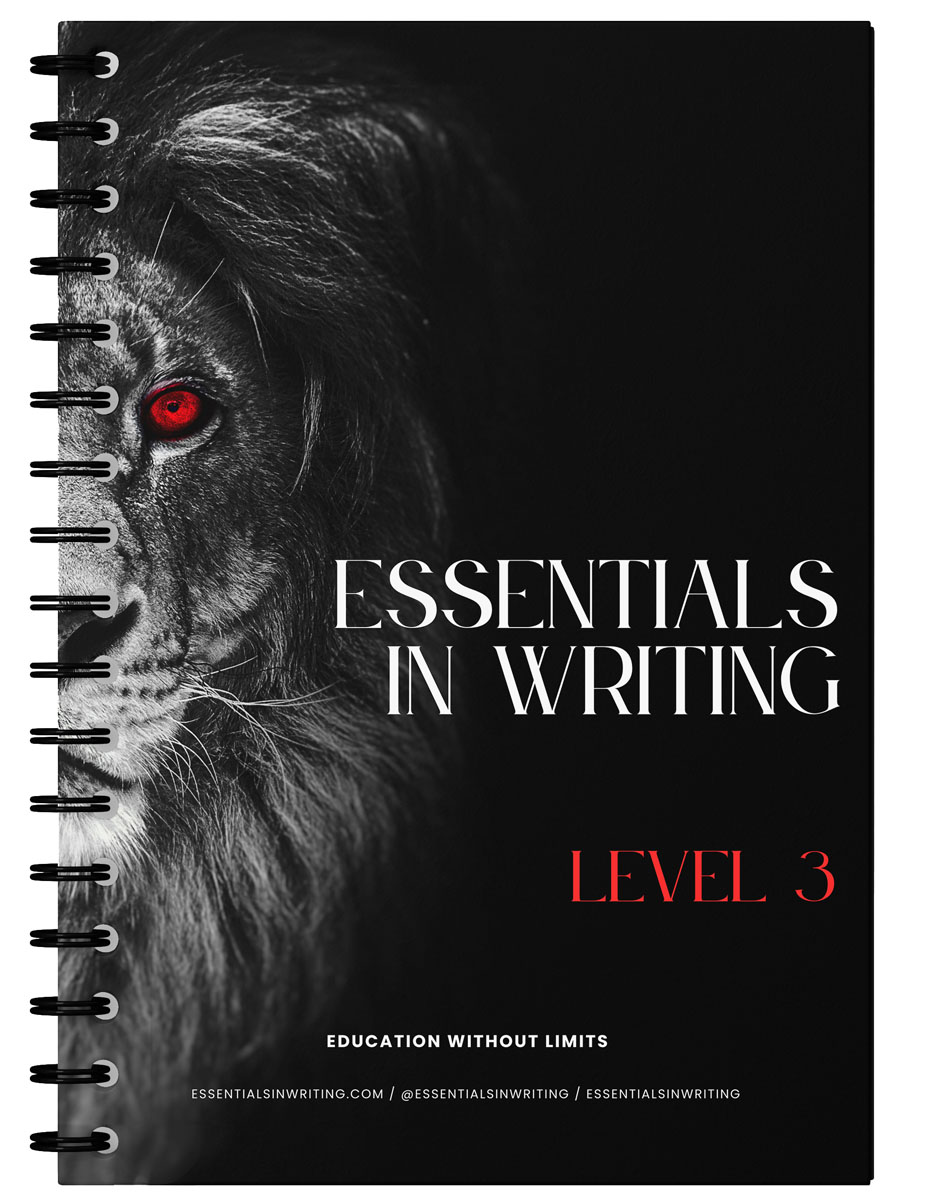For Essentials in Writing (EIW™), the goal is that students
will learn to write well. Through incremental lessons, students develop a
logical line of thought and learn to convey their purpose and context, all
while explaining a topic they’ve explored. Material covered in each grade is
age appropriate and is introduced in a sequential manner. Beginning in lower
elementary, students spend approximately half the year learning about and
applying grammar concepts in sentences and various activities. Level 1 begins
with an overview of correctly writing sentences, learning parts of speech, and
then moves to paragraphs. Grammar will be a focus in the lower grades. In the
upper levels, grammar is taught with the focus on writing application. Mr.
Stephens believes that the program covers grammar sufficiently, but if you want
to cover sentence diagramming, a separate course would be necessary. Spelling
is not covered in the course. By the middle grades, the focus is on sentence
and paragraph structures as used in essays, personal and business letters, research
papers (with some oral presentation in high school), and more. By high school,
students will fine-tune their research skills and be prepped for college-level
writing.
Each level features a bundle of 12-month renewable
lesson-by-lesson video instruction; consumable student book (which
functions like a worktext), a teacher handbook (with answers and
a schedule), and a choice of a grade level bundle that includes optional
digital resources and assessments for levels 1-10. Levels 7-11 offer an optional
bundle of EIW™ Writing and Literature for a complete language arts program. Within
72 hours after your order is processed, you’ll receive digital access via email
directly from EIW™. Access
terminates one year from the date you begin.
Lessons are typically
assigned over 34 weeks (with breaks included). The video lessons featuring
Matthew Stephens are the core of the course. With a wealth of multi-age
teaching experience, Mr. Stephens presents and explains the material, leaving
clarification, follow-up discussion, assignments, and writing evaluation (using
rubrics) to you as the teacher. No need to worry, though: instructor helps in
the Teacher Handbook include scoring rubrics, writing checklists, answers, and a weekly lesson plan.
Each day has a regular rhythm. Watch the video lesson, read the day’s text in the
student book, complete the day’s assignment, and verbally discuss the concepts—all
working toward a final draft. Assessments (2nd edition only) are optional.
These are assigned regularly throughout the year (number of assessments will
vary by level).
Each lesson is presented in bite-sized chunks, featuring one
main point. At the elementary levels, these courses will be more parent/teacher
dependent. You and your student will watch the videos together, and then
discuss. Then you’ll guide your student as they work out concepts in their
student book. The activities in this consumable book serve to apply the skills
taught and help students understand the material and practice specific skills. Lesson
lengths are age appropriate. Grades 1 and 2 average 10 to 20 minutes total,
including about 3 minutes of video presentation. By grades 6 to 12, courses
become more student-driven. Lesson length can run 20 to 40 minutes, with several
minutes of video presentation. Levels 1 through 10 are in the second edition,
with grades 7 through 10 recently being updated in textual content, visual
presentation, and video instruction. Second edition updates for Levels 11 and
12 are projected for the future. Videos from grades 7 through 10 feature Mr.
Stephens teaching before a white background, often screensharing to engage with
a writing sample, showing corrections, showing writing steps, etc. For the
remaining grades, the videos show Mr. Stephens teaching before a whiteboard,
which he uses to explain concepts.
The consumable student book coordinates with
the video lessons. You’ll need one per student. Please note that there has
been a cover change to the print books. Newer covers feature a lion. While we
work through our inventory, you may receive two different covers if you order
an extra worktext with a course. ~ Ruth


